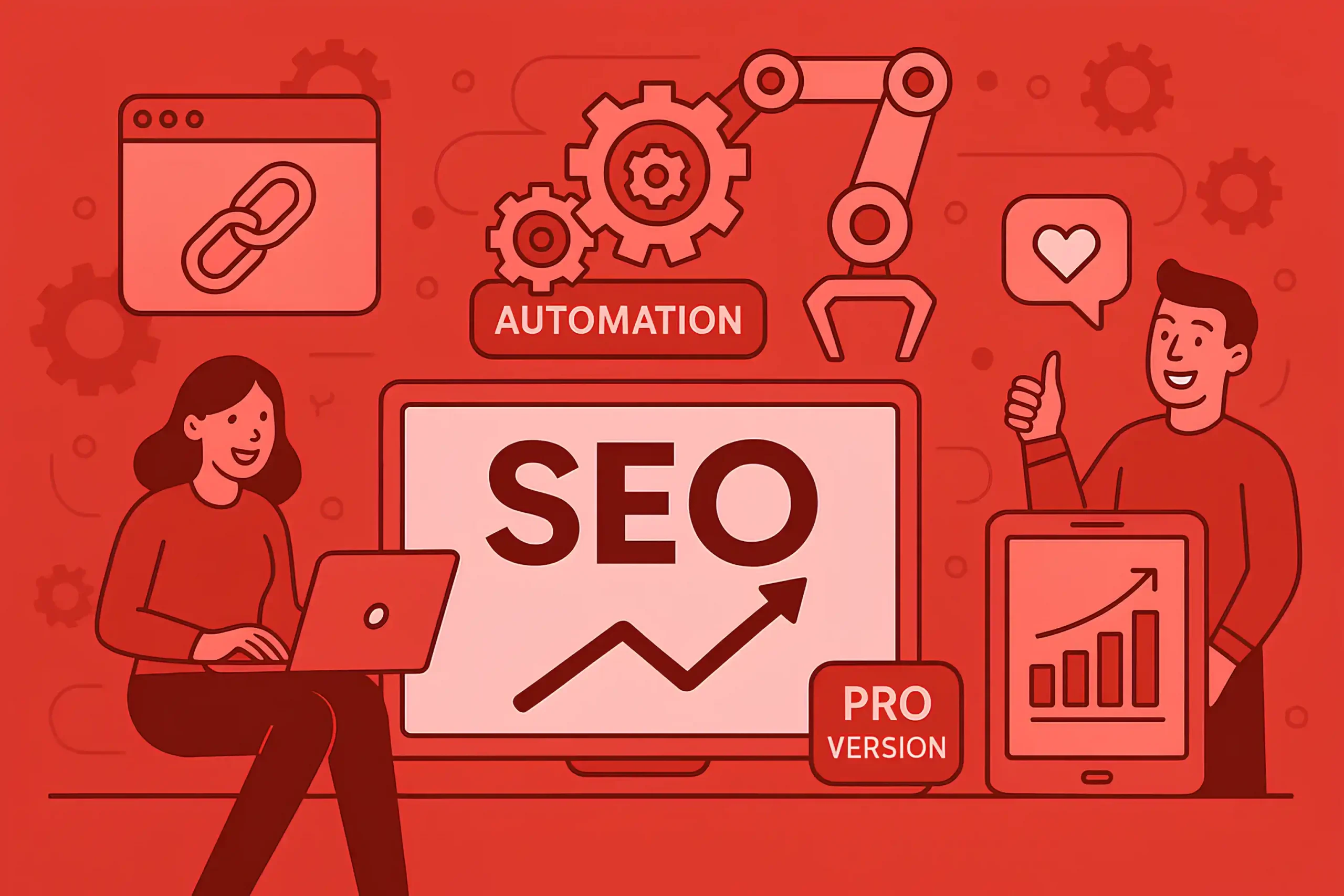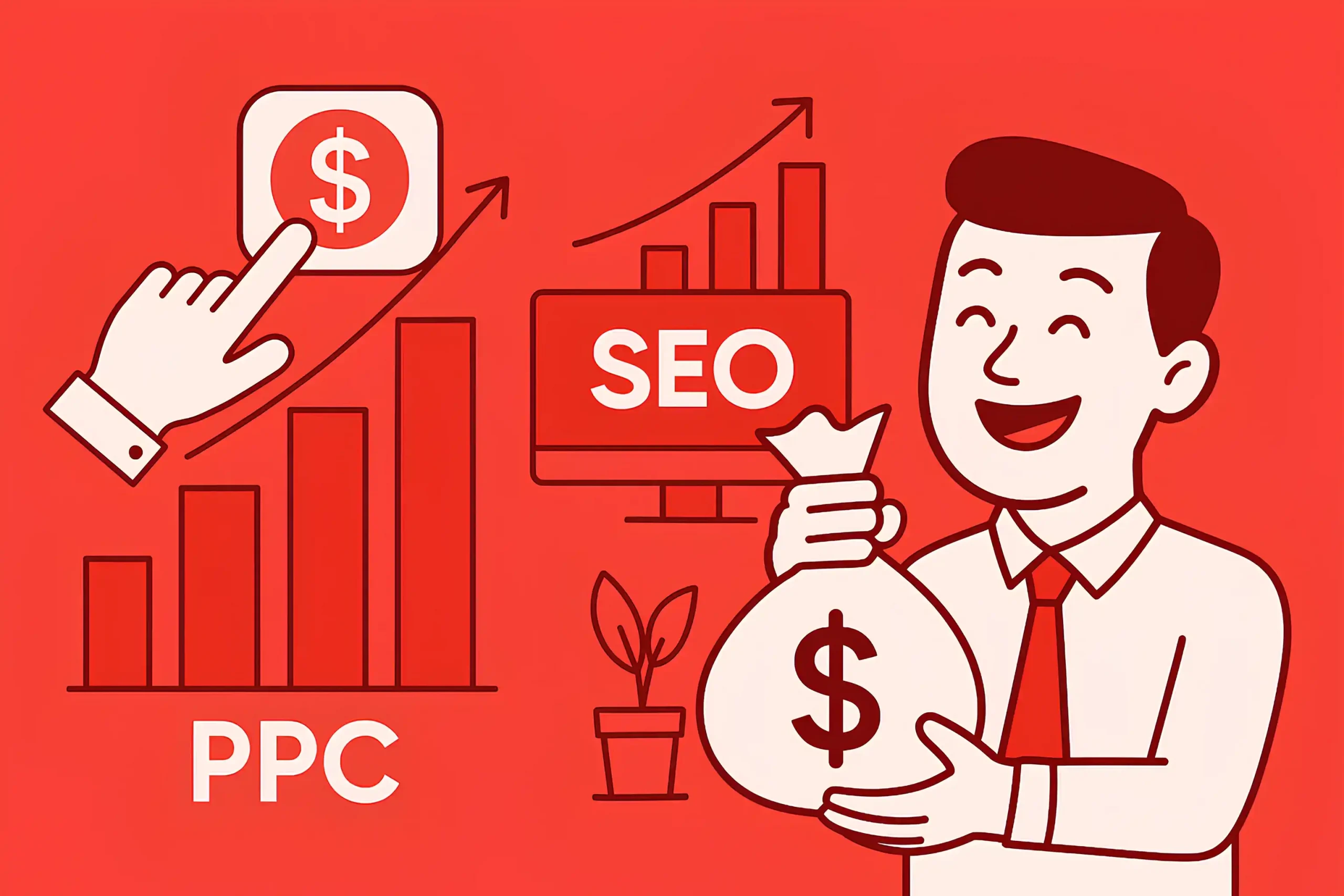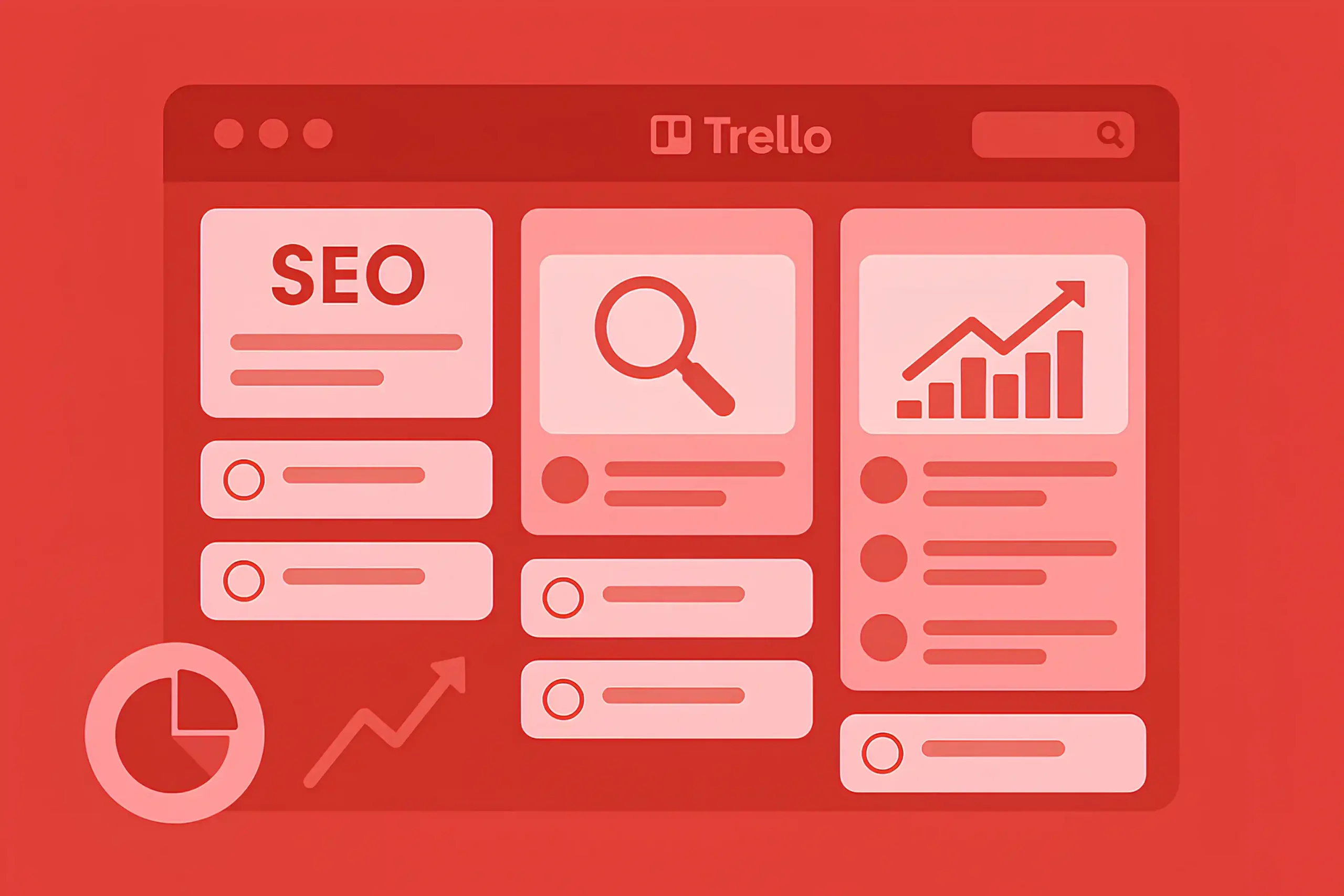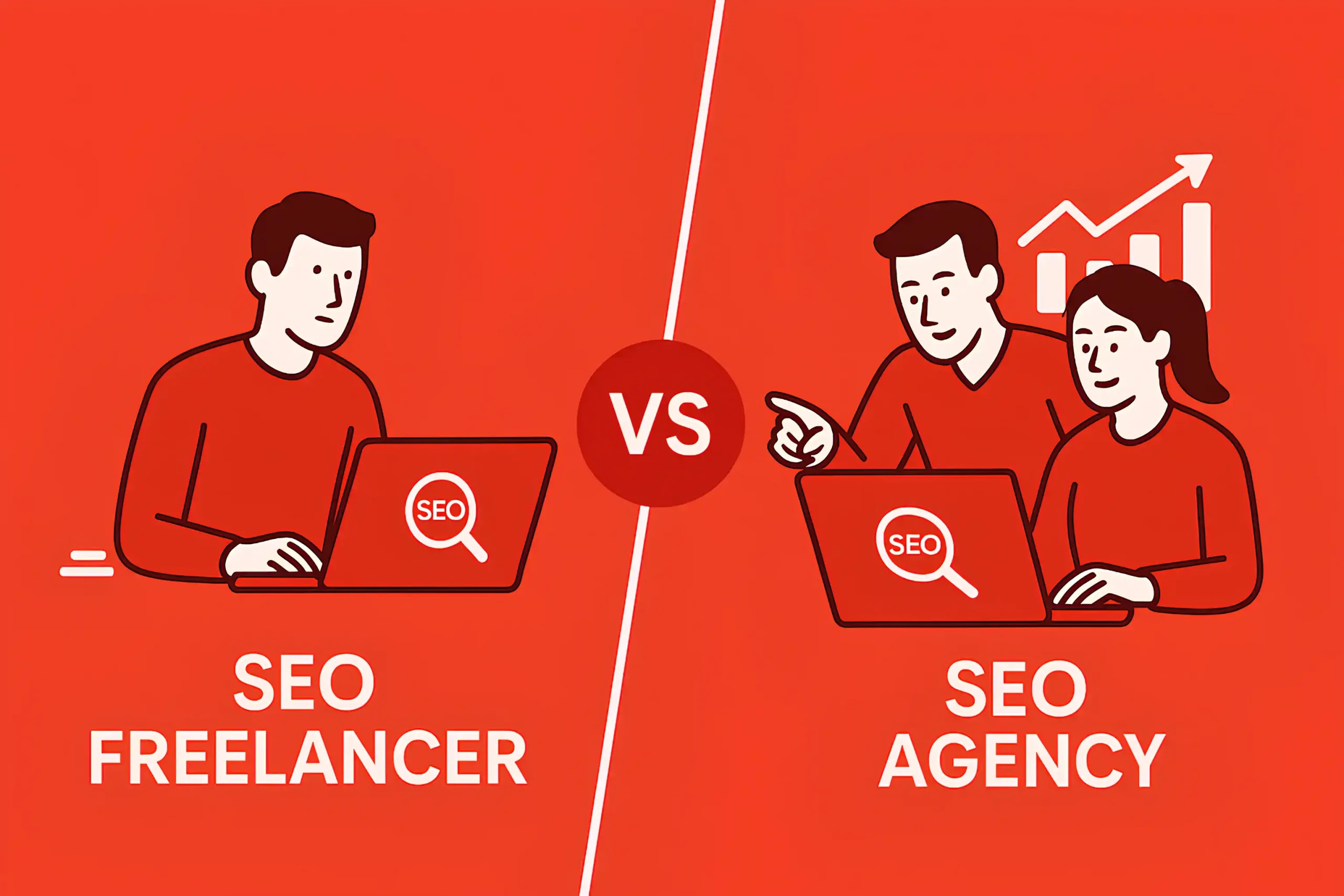SEO is not cheap, and I’m not surprised that many business owners (especially startups and small businesses) try to run SEO in-house or outsource to a freelancer from an affordable country. I personally know a few who even take some SEO courses on Udemy to start handling SEO on their own (Again, I don’t blame anyone).
However, you don’t start a business every day, and when you do, every decision you make matters, especially where you invest your money and time. SEO is one of those areas where getting it right from the beginning can set you up for long-term growth, while getting it wrong can cost you months or even years.
In this blog post, I’m going to cover why you should hire an SEO agency, the real benefits they bring, and even some tips on how to choose the right one for your business. If you’re ready to make SEO a growth engine instead of a guessing game, keep reading.
Why Should You Hire an SEO Agency?
Hiring an SEO agency can save you an incredible amount of time and frustration. It’s an ongoing process that involves technical optimization, content strategy, link building, competitor analysis, and constant monitoring.
If you try to do all of this yourself, you’ll likely spend months learning, testing, and making mistakes before you see any real progress. An experienced agency already knows what works, has the right tools, and can start moving the needle much faster.
I believe another big reason is expertise and perspective. A good SEO agency works with clients across different industries, so they’ve seen what drives results in various competitive environments. They know how to spot opportunities you might miss, avoid costly mistakes, and adjust your strategy when search engine algorithms change.
On top of that, they can bring fresh, data-backed ideas to your marketing; things that might never cross your mind if you’re working alone.
Top Benefits of Hiring an SEO Agency
For many years, our team at NEWMEDIA.COM has worked with a wide range of marketing and SEO agencies. I’ve seen the ins and outs of how the best SEO agencies operate, what makes them effective, and where many go wrong. I’ve worked closely with teams that deliver serious results, and I’ve also seen the ones that promise everything but barely lift a finger.
In this section, I’m not talking about the cheap, untrustworthy agencies that charge you for nothing; I’m talking about reliable agencies with years of experience, proven processes, and the honesty to tell you what will and won’t work. So, let’s dive into the top benefits of working with a trustworthy SEO agency.
Proven Industry Experience
It’s not by chance that I wanted to start with this as the number one benefit, because this is the point that so many agencies, experts, and freelancers completely misunderstand. Yes, the core principles of SEO are the same everywhere: you optimize pages, build authority, and improve visibility.
But how you do those things varies massively depending on the industry. For example, if you’re running an e-Commerce store but hire an SEO agency whose only experience is in law firm SEO or SaaS SEO, you’re going to feel that gap very quickly.
The technical setup, the conversion funnels, the buyer intent keywords, even the content tone; these things shift dramatically from one niche to another.
The real advantage of working with an agency that has proven experience in your specific industry is that they already know the challenges. They’ve studied your type of competitors and know how to achieve the highest SEO ROI in your industry. They’ve seen what tactics work and which ones waste money.
They know which link-building strategies move rankings in your space, how seasonal trends affect search demand, and how your audience behaves before they convert. They understand types of content formats that attract backlinks in your niche and the keyword angles that get you in front of the right buyers, not just any traffic.
On the other hand, a freelancer might be talented, but often they’ll just execute exactly what you ask for, without the deep market understanding to push back or improve the strategy.
An industry-experienced agency comes in with tested playbooks and the confidence to adapt them to your brand. They don’t have to “figure it out as they go”; they’re already building on years of trial and error with businesses like yours.
Access to Better Tools, Data, and Insights
When you work with a good SEO agency, you can be 100% sure they already have the full setup in place: no wasted time figuring out what software to use, no outdated data or tactics.
They’re running on premium, professional-grade platforms for keyword research, backlink analysis, rank tracking, content optimization, and technical audits. They use enterprise-level tools like Ahrefs, Semrush, Screaming Frog, and advanced outreach platforms that give them deeper, faster, and more accurate data.
Agencies know what works and what doesn’t because they’ve tested strategies across dozens of campaigns. From leveraging AI-powered SEO services for faster content creation and optimization, to running highly targeted outreach and link-building campaigns, to implementing programmatic SEO at scale, they’ve already set up their processes.
They also understand the nuances of different CMS platforms like WordPress, Webflow, Shopify, Magento, or custom-built solutions, so your SEO is implemented in a way that works perfectly with your website’s framework.
Advanced Maintenance and Support
Good SEO isn’t something you do once and walk away from; it needs constant attention. The best agencies don’t just give you a plan and disappear; they keep an eye on your site and act fast if something goes wrong.
I’m not talking about cheap “SEO packages.” I mean reliable teams that know their craft and treat uptime, indexing, and traffic stability like mission-critical. If rankings drop overnight, pages get de-indexed, or you get hit with a negative-SEO attack, they already have an incident playbook.
They’ll audit recent changes, check Search Console coverage, compare server logs and crawl stats, roll back risky releases, patch internal links, request reindexing, and escalate where needed. You’re never alone at 2 a.m.
One of the biggest advantages of working with a good SEO agency is that you get a dedicated SEO manager who becomes your main point of contact and project lead. This person knows your business, understands your goals, and coordinates everything so you’re never left wondering who’s handling what.
They keep you updated, answer your questions, and make sure deadlines are met, but they’re not doing it all themselves.
Behind that manager is a team of specialists, each focused on a specific area of SEO. You’ll have a technical SEO expert handling things. An on-page SEO and content strategist works on keyword targeting, content structure, and internal linking to make your pages more relevant and competitive.
An off-page or link-building expert focuses on outreach, digital PR, and backlink acquisition. Sometimes, you’ll even have a developer or analytics specialist involved to handle advanced implementation or reporting.
This is a huge difference compared to working with a freelancer or a single in-house hire. In most cases, they’ll try to cover every aspect of SEO themselves, but no one can be equally strong in technical audits, content strategy, digital PR, and analytics. With an agency, you’re getting multiple experts working in parallel, each playing to their strengths, all coordinated under one clear strategy.
Use Cases Where Agencies Outperform Internal Teams
There are certain situations where an SEO agency can outperform almost any internal setup, simply because of their experience, resources, and ability to move fast without cutting corners. One of the clearest examples is when you’re launching or rebuilding a website.
A seasoned agency has handled dozens, sometimes hundreds, of site migrations and launches across different CMS platforms, and they know how to plan the process without missing anything.
They’ll focus on both quick wins that get you early traffic and the long-term strategies that set the foundation for sustainable growth, all while making sure you avoid common migration pitfalls like lost rankings or broken URLs.
Another case where agencies shine is when you need consistent content production and aggressive link-building. I would say, in most cases, in-house teams and freelancers often struggle to keep the speed without sacrificing quality, simply because they don’t have the capacity.
An agency, with a larger team and structured workflows, can produce a regular stream of optimized content and secure high-quality backlinks at the right speed to keep you competitive, without lowering standards.
If you’re competing in a tough niche, an agency’s experience becomes even more critical. High-competition markets are unforgiving. You’re likely committing a significant budget, and you can’t afford to waste it on trial and error. With freelancers, you often won’t know whether underperformance is due to their limitations, your site, or the sheer strength of your competitors. A proven agency removes that uncertainty; they’ve already tested what works in similar markets and can execute with confidence from day one.
Hiring an SEO agency also makes sense when you’re running paid ads but don’t have a good organic strategy. As we know, paid campaigns can bring fast results, but they stop the moment you pause your spending.
Finally, if you’re expanding into a new market, targeting a new region, or managing multilingual SEO, an agency is the safest choice. International and regional SEO involves cultural nuance, local keyword research, geo-targeting, hreflang implementation, and sometimes even legal compliance for certain industries.
These are not areas you can afford to “figure out as you go.” With the right agency, you get experts who have done it before, know the common mistakes, and can handle the heavy lifting so you can enter the market with confidence.
5 Most Common Objections
If you ask ten different business owners about their experience working with SEO agencies, you’ll probably hear ten very different answers. One will tell you it was a complete waste of time, another will insist it’s too expensive, and someone else will swear it was worth every single dollar.
The truth is, these mixed opinions usually come down to expectations, communication, and the quality of the agency itself. There are common objections that come up again and again: some valid, some based on misconceptions. In this section, I’m going to break down the five most common ones so you can see the bigger picture and decide for yourself.
Agencies Are Too Expensive
I think “Too expensive” is usually a budgeting question, not a verdict on SEO itself. Costs swing with your market, margins, goals, and even your country’s labor rates. For small to mid-sized businesses, it’s normal to see retainers in the $2,000–$3,000 range for services alone, with separate budgets for content and link acquisition. It buys senior thinking, proven process, and the infrastructure (tools, QA, deliverability, tracking) you don’t have to build yourself.
If your average customer value or LTV can cover that investment with a realistic growth path, an agency isn’t “expensive”; it’s the cost of compounding results without years of trial and error.
Where SEO becomes truly expensive is when you underfund it, hire the cheapest option, or expect guarantees. Cheap work often means weak technical foundations, thin content, and risky links that later need cleanup, so you pay twice: once for what didn’t work, and again to fix it.
A good agency won’t promise rankings; they’ll promise quality inputs and a repeatable process: clean technical execution, smart content mapped to intent, safe link acquisition, and measurement that ties effort to outcomes.
To decide whether the price is right, match spend to upside. If one additional closed deal a month pays the retainer, the math is different than a low-margin store needing thousands of sales to break even.
Insist on clarity: what’s included as “services,” what’s production (content, digital PR, development), what success metrics will be tracked, and what milestones will trigger scaling up or down. Use phased engagements: 90 days for audit, fixes, and a pilot content + outreach, then expand what’s working.
Keep some work in-house (like subject-matter drafting) to control costs while the agency handles strategy, technical, and promotion.
We’ve Tried an Agency and Got Nothing
Hearing “we tried an agency and got nothing” is more common than you think, and it’s usually a mix of poor execution, mismatched expectations, and a lack of transparency.
Yes, SEO isn’t a guaranteed win; there are too many variables like competition, budget, site health, and timing, but that doesn’t excuse agencies that hide behind “SEO takes time” while delivering little to no meaningful work.
Ask questions, compare answers from multiple agencies, and see who’s talking about your market and competitors versus who’s giving generic promises. If an agency can’t clearly explain what they’ll do in the first 90 days or how they’ll adapt if things don’t move, they’re not worth your time.
Remember, results can never be guaranteed in SEO, but the quality of work can and should be. Even if the rankings take time to catch up, you should feel confident you’re moving in the right direction, not standing still under the excuse of “it takes time.”
We Just Need a Few Blog Posts
If you think you “just need a few blog posts,” you’re likely to waste money. SEO isn’t a content calendar with three new articles a month. If your homepage is slow, your site architecture is messy, your internal links don’t point to money pages, or your pages aren’t indexed properly, a few new posts won’t move the needle.
The same goes for “a few backlinks” or a one-month push. Without technical fixes, keyword mapping, and a plan for authority, you’re decorating a house with a cracked foundation.
What works is a custom strategy tied to business goals. If the budget is tight, don’t publish content everywhere. Run a 90-day test focused on one clear goal: fix technical issues, publish a small group of targeted articles, get a few quality backlinks, and improve based on Search Console data.
Update pages that drop, grow the ones that perform well, and only scale once you see real progress. Posting just to “keep the blog fresh” isn’t a strategy; publishing the right pages on a strong site with trackable results is.
SEO Takes Too Long, We Need Faster Wins
If you have zero patience, thinking that your SEO is not working, it will probably drive you crazy. From my experience, timelines vary wildly. If your site’s in a low-competition niche with good foundations and a healthy SEO score, you might start seeing movement in three to six months.
But if you’re in a competitive industry, starting from scratch, or dealing with years of neglect, it can take six months, twelve months, or even longer before you see consistent results.
Honestly, this isn’t a mystery; you can just search on Google or ask any reputable SEO how long it takes, and you’ll hear the same thing: organic growth is stable, but it’s not instant. If your mindset is all about quick wins, then SEO isn’t the right channel for now.
Just run Google Ads or other paid campaigns to get traffic immediately. But if you want lasting results that continue to bring leads without paying for every click, then SEO’s slow start is worth the wait.
What to Expect When Working With a Great SEO Agency
I won’t go far from the point. Here’s exactly how we handle new clients at NEWMEDIA.COM, and what you should expect from any serious agency. We start with a real conversation, not a sales pitch.
The kickoff call is about your goals, margins, seasonality, and what “good” looks like for you, not us. Right after, we send a short but sharp discovery doc that nails down market realities, competitors, ICPs, KPIs, existing constraints, and past experiments.
We baseline everything: technical health, content performance, indexation, internal links, backlink quality, and we show proof we’ve done this before with relevant case studies.
Within the first two weeks, you should see structure. You get a dedicated SEO manager who owns outcomes and communication, and a working project space in your PM tool (Asana/Trello/, your call) where every deliverable, deadline, owner, and status lives.
We set a 30/60/90 plan you can measure: what ships in month one (audits, fixes, measurement), what’s produced in month two (cluster content, internal link revamps, outreach pilots), and what scales in month three (content and link velocity refined by data).
Expect a custom strategy, not a PDF. Not reporting is boring on purpose: simple dashboards, change logs for every deployment, weekly notes on what moved and why, and a standing slot to talk through tradeoffs.
The “green flags” you should look for are straightforward. You get access to everything: dashboards, docs, outreach domains, briefs, and code changes in staging before they go live. You see a content calendar that ties topics to revenue, not just traffic.
If an agency can’t describe this level of process, won’t show you change logs, hides the source of their links, promises rankings, or relies on “SEO takes time” while nothing happens, walk away. What you should expect is the progress you can feel. That’s the difference between being “managed” and being moved forward.
SEO Agency vs. Freelancers vs. In-House
An SEO agency is the best fit when you need a full spectrum of skills: technical SEO, content strategy, link acquisition, analytics, and dev support, without hiring an entire department. Agencies can hit the ground running because they’ve already built the playbooks, tool stacks, and processes.
You pay for a team, not just a single person, so the average retainer for a reputable agency ranges from $2,000–$3,000+ per month, depending on complexity and market. You get speed, breadth, and established systems, but you also have to align with their workflow and communication style.
A freelancer works well for smaller projects, like auditing your site, writing SEO content, or running a specific link-building campaign. They’re flexible, often more affordable, and can offer highly specialized expertise. Rates vary wildly; junior freelancers might charge $20–$50/hour, while seasoned ones with proven case studies can charge $75–$200/hour.
The downside is capacity and scalability; one person can only handle so much, so if you’re aiming for aggressive growth, you’ll either need multiple freelancers or take a risk.
An in-house SEO is the right call when SEO is a core growth channel for your business, and you need someone embedded in your team who lives and breathes your brand. Salaries in the U.S. range from $60,000–$100,000+ per year, not including benefits, tools, and potential training.
You get full focus and easier cross-department collaboration, but you’re limited to that individual’s skill set, meaning you’ll often still need external help for specialized areas like digital PR or advanced technical SEO.
Here is the complete breakdown














